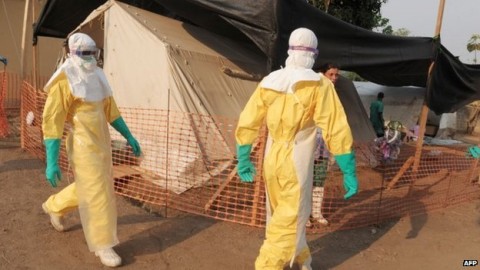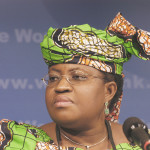EBOLA: US Schools Screen Students Arriving from Nigeria
African News, Ebola News, Featured, Latest Headlines, News Friday, August 29th, 2014
…Order Students to Stay Away from Campus for 21 Days
With Ebola in mind, US campuses are screening students arriving from Nigeria and other West African countries.
Extra health checks are part of protocols campuses throughout the United States have in place as they prepare for as many as 10,000 students from Nigeria, Guinea, Liberia and Sierra Leone, where more than 1,000 people have died in the worst Ebola outbreak in history
With the virus continuing to kill in Guinea, Liberia, Sierra Leone and Nigeria, the expected arrival of thousands of students from those countries has U.S. authorities on alert but cautioning against alarm.
The roughly 30 Nigerian students expected at the University of Illinois will be pulled aside for a temperature check and private Ebola discussion when they arrive at the health centre for mandatory immunization paperwork and tuberculosis screening, said Dr. Robert Palinkas, the centre’s director.
Moses Ogunseye arrived from Lagos, Nigeria, a little over two weeks ago to study at Akron. The 31-year-old graduate student said he spent a few minutes filling out a questionnaire and was given a disposable thermometer to monitor himself for fever for a couple of weeks, something he doesn’t mind doing even though he is certain he hasn’t been exposed to Ebola.
“I would expect that. It’s a very logical thing to do,” he said of the screening, which, though voluntary, is encouraged.
Alma Olson, director of Student Health Services at the university, said students are being asked to keep tabs on their temperature for up to 21 days, the length of time it can take for symptoms of Ebola to appear following exposure.
“At the end of the 21-day period they’ll come back and we’ll check them and send them on their way,” Olson said. The CDC requires that any potential Ebola patient be isolated and public health professionals notified.
“There’s such a low level of worry” because Ebola doesn’t spread easily, she said, “but we really have to be on top of any communicable disease.”
About 25 students from Nigeria are enrolled for fall at the University of Buffalo.
“I can see why there would be concern; there’s no vaccine for it,” said Fatima Nor, an 18-year-old freshman at the University at Buffalo.
“As long as everyone keeps their personal space, it should be OK,” said Nor, of Buffalo.
While the U.S. Centers for Disease Control and Prevention have issued no specific recommendations for universities, some state health departments, including in South Carolina and North Dakota, have spelled out for administrators what symptoms to look for and how to react.
Elsewhere, universities are drafting their own precautionary plans against the often-fatal hemorrhagic fever, which causes weakness, vomiting, diarrhea, internal bleeding and sometimes bleeding from the nose and ears.
The American College Health Association recommends its members update emergency plans, find out where patients have travelled and use isolation exam rooms when available. Several colleges are checking the temperatures of students arriving from affected countries and continuing to monitor for fever until any risk of contagion has passed.
Universities in the United Kingdom also are on alert with the expected arrival of thousands of Nigerian students there. Universities UK, which represents universities, has circulated guidance from Public Health England advising administrators on how to recognize and react to possible cases.
Related Posts
Short URL: https://www.africanexaminer.com/?p=16820




















